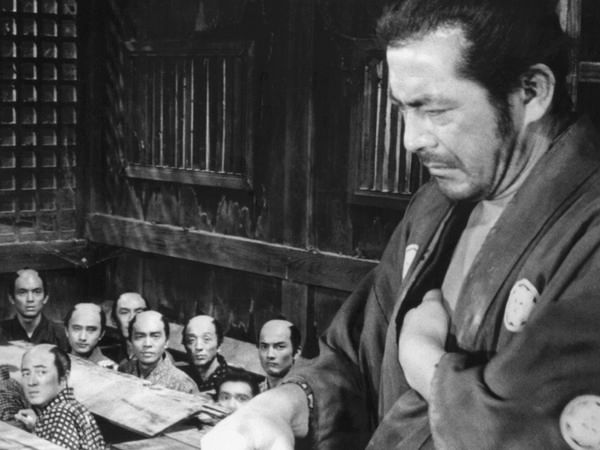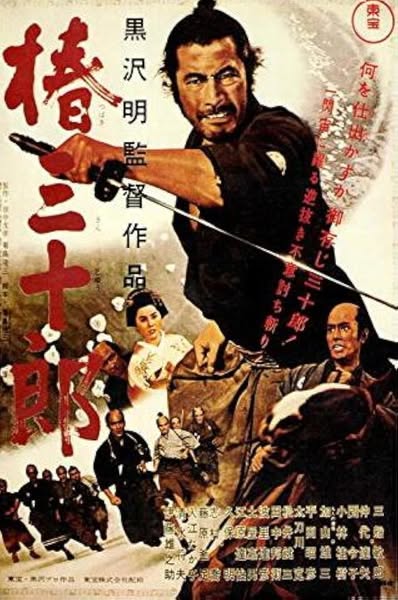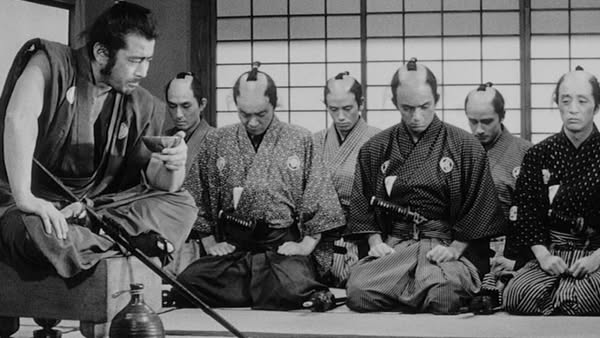Sanjuro (1962)

“Sanjuro,” directed by Akira Kurosawa and released in 1962, is a compelling samurai film that serves as a sequel to the acclaimed “Yojimbo.” Featuring Toshiro Mifune in the titular role, the film combines action, humor, and a critique of honor and morality within the samurai code. This darkly comedic take on the genre showcases Kurosawa’s masterful storytelling and visual style.
The narrative follows Sanjuro, a wandering ronin who becomes embroiled in a conflict between a group of young, idealistic samurai and a corrupt official. The young samurai are eager to fight for justice but lack the experience and cunning to navigate the treacherous political landscape. Sanjuro, with his pragmatic approach and sharp wit, decides to help them, albeit with a healthy dose of skepticism about their noble intentions.

Kurosawa’s direction shines as he deftly balances moments of intense action with lighter, comedic interludes. The film’s cinematography captures the beauty of the Japanese landscape while also heightening the tension during confrontations. The action sequences are meticulously choreographed, showcasing Mifune’s physicality and charisma.

Mifune’s portrayal of Sanjuro is both complex and endearing. He embodies the archetype of the reluctant hero, often questioning the motivations of those around him. His interactions with the young samurai highlight the generational divide and the challenges of maintaining honor in a changing world. The film’s dialogue is sharp and filled with humor, adding depth to the characters and their relationships.
“Sanjuro” also explores themes of loyalty, betrayal, and the moral ambiguities of the samurai code. The film raises questions about the nature of honor and the consequences of idealism, ultimately presenting a more nuanced view of heroism. As Sanjuro navigates the chaos around him, he offers a pragmatic perspective that challenges the rigid ideals held by the younger samurai.

Overall, “Sanjuro” is a masterclass in filmmaking that blends action, humor, and philosophical inquiry. Its engaging narrative and rich character development make it a standout in the samurai genre. Kurosawa’s ability to blend different tones and themes ensures that the film remains relevant and thought-provoking, solidifying its status as a classic in world cinema. Mifune’s unforgettable performance and the film’s stylish execution make “Sanjuro” an essential viewing experience for fans of film and samurai stories alike.











